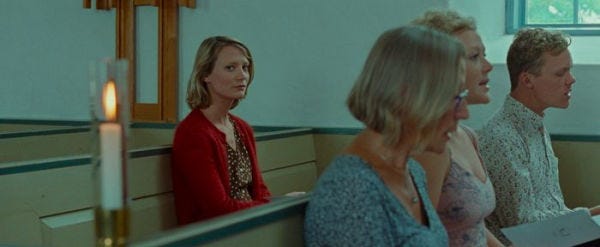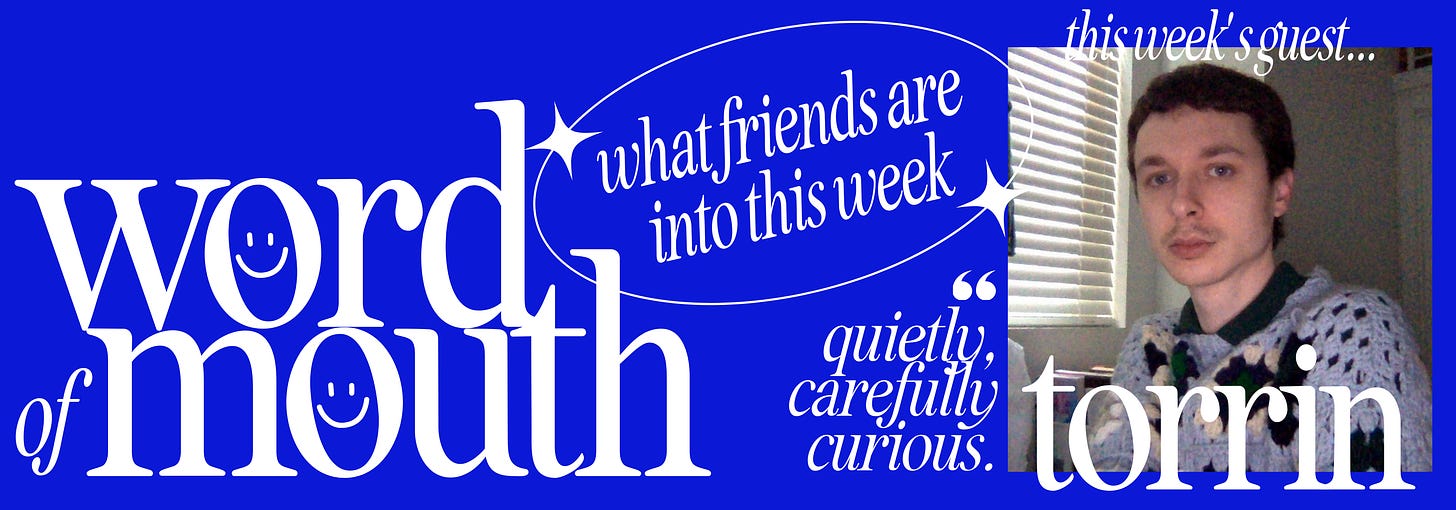That's How the Light Gets In
This human experience we share

The Sunday Letter #6
“Here’s a way of putting the problem: on one hand we want art to be free, and on the other we want it to mean. Not just to mean, but to be meaningful,” author Garth Greenwell begins his uproarious Yale Review article, A Moral Education: In praise of filth. I can’t stop thinking about this piece, which so brilliantly summarizes a frustrating undercurrent I’ve noticed lurking beneath the online discourses around literature these days. That is, the icky sense that readers are afraid to be seen as ‘endorsing’ a book in which problematic things occur, even if the book was otherwise well-written and thought-provoking.
I don’t even necessarily agree with everything Greenwell says in this article, which is, I think, part of the point. Greenwell notes that many of his students primarily engage with text through moral judgments, due to a “paranoia about our own moral status, a desire to demonstrate our personal righteousness in our response to art.” But Greenwell warns against this:
But a profound experience of art is an experience of something like love, which is to say of singularity; when you’ve had a profound encounter with Giovanni’s Room, say, or a portrait by Alice Neel, you can’t imagine swapping it out for something more conveniently affirming of social values we cherish.
I’m very much of the belief that if I want to grow as a writer, the art I consume should be challenging; why read something that placates every taste and belief I already hold? As Ali Smith wrote in Artful: “forms produce themselves, out of a meeting of opposites.” Or, as Elena Ferrante argued in The Paris Review:
I don’t think the reader should be indulged as a consumer, because he isn’t one. Literature that indulges the tastes of the reader is a degraded literature. My goal is to disappoint the usual expectations and inspire new ones.
In fact, it’s in the challenge that Greenwell argues we can find our shared humanity. Do we want art to present the world and the people in it as morally-exemplary, and thus a little bit false, so that we can easily decipher it as morally good or bad? Greenwell notes that the current demands placed on art, moral and/or political, “make it impossible for art to do the moral work proper to it.” How can art address the “monstrous,” if we’re afraid of looking at the monstrosity head on? But the story, to me, has a hopeful ending, one that acknowledges our human filth and revels in what that means for humanity:
“It’s not hard not to be terrible” is a sentiment I see floating down my social media feeds with alarming regularity. But I am a novelist because I think it is hard not to be terrible. I think it’s the work of a life, and most of us fail at it almost all the time. Certainly I do.
The challenge isn’t to “reject or unmake that humanity,” Greenwell argues, “but instead to acknowledge it ours.”
This week’s recommendations
Last week, I enjoyed Waiting for Guffman (dir. Christopher Guest, 1996), and I thought Bergman Island was…fine, though visually gorgeous. Vicky Krieps was fantastic as a writer/director seeking inspiration, before the film opens up into a gorgeous movie-within-a-movie that I wished was real, written by Krieps’ character, and featuring Mia Wasikowska and Anders Danielsen Lie (from The Worst Person in the World, which I wrote about here). I found Krieps’ comments about her difficulties filming with co-star Tim Roth (of Pulp Fiction and She-Hulk: Attorney at Law fame) to be interesting, to say the least: “Tim is, first of all, a man, and second, a man of a different time.”
Succession season 4 began last week, and if you haven’t seen it yet, prepare for 9 more weeks of constant references to it online. Last week’s most infamous moment was Tom, Logan’s new best boy, dressing down Cousin Greg’s date to his grandfather’s birthday and her choice of ludicrously capacious bag. His flowery insults inspired a thousand memes and just as many hot takes on TikTok about how Tom’s manner of wealth signalling has become more conspicuous as he’s gotten deeper into the Roy family’s inner circle. But my absolute favourite take was from @pubbrunch on twitter: a reference to the brief, glorious summer of 2021 when Sally Rooney’s Beautiful World, Where Are You was the most coveted merch of the entire literary world (the way publisher merchandise is its own wealth/social capital signal is a story for another day).
Brit Dawson in GQ, on tech, sex dolls, and the future of intimacy had me thinking about the cost of love being vulnerability:
“I suppose there’s a self-preservation aspect to having a synthetic partner,” says Davecat. “If you find an organik [i.e. human] person and you fall in love with them, are you really in love with them or your image of them? At some point, they might say or do something that runs counter to this image – you don’t ever have that with a synthetic.”
You may recognize Maggie Smith’s poem, Good Bones, which went viral in 2016: “Life is short, though I keep this from my children.” This week, in The Cut, Smith reveals that her rapid literary success led to the unravelling of her marriage. On becoming a woman that dulls herself to appease her envious husband: “What would I have done to save my marriage? I would have abandoned myself, and I did, for a time.”
Reading: “Our Share of Night by Mariana Enriquez has been stuck in my head ever since I finished it a couple weeks ago. It's a massive and ambitious queer literary horror experience with so many surprising elements and deep relationships. At its heart, it's a portrait of a father/son relationship and the ways in which we try to protect those we love.”
Watching: “I don't really watch many movies or TV lately during this period in my life, but I have so many movies on my I-want-to-watch-when-I'm-in-the-right-headspace list. I tend to watch sitcoms on repeat as I'm falling asleep though, and currently I'm rewatching Seinfeld.”
Listening: “I'm just as much of a music lover as I am a book lover. An album / artist that always returns to me as the weather starts to warm up is Covey. Specifically the Some Cats Live, Some Cats Die album. Lana Del Rey's new album Did you know that there's a tunnel under Ocean Blvd? has also taken over my life. It feels like an album she made fully for herself & family, and I'm glad that she let us have it too. There is just so much to find within her lyrics and worlds she creates in her songs.”
Life, etc: “Loving Jaylen Lopez's (@thebarandthebookcase on instagram) Reading the Room podcast, especially the new episode featuring Tiffany McDaniel, one of my favorite authors.”
P.S. You can find Torrin on instagram!






i read the dangers of smoking in bed by mariana enriquez last summer and only found it okay... like it was good but none of the stories felt spectacular to me and i liked the settings and story concepts and just the vibes but they were still predictable and ultimately slightly uninteresting to me. have you read that one? if so do you think that her new book is better? because i’m so open to giving her another try if you really recommend our share of night :D